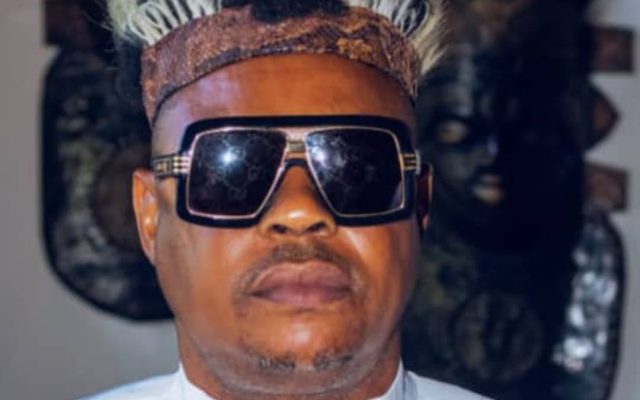In a world where migration often strips individuals of identity and culture, one man has done the extraordinary — not just to survive, but to transplant an ancient legacy and make it blossom in a land thousands of miles from home is Igwe Aranazunwa Japan, HRM Eze Chris Umeh.
The meaning? “The breast that feeds the children” — a powerful symbol of nurturing leadership, of one who gives constantly, sacrificially, and without asking in return. But beyond the symbolism lies the man: wealthy, wise, generous, and deeply rooted in the spirit of his people.
In a book titled: ‘People, Predicaments and Potentials in Africa’ by three firebrand Japanese scholars and intellectuals: Takehiko Ochiai, a Professor of African Studies and International Relations at Ryukoku University, Japan, Misa Hirano-Nomoto, a professor at Kyoto University, Japan, specializing in Asian and African Area Studies, and Daniel E. Agbiboa, an Assistant Professor of African and African American Studies at Harvard University.
The book focuses on African societies, placing people at the center of the discussion and exploring their predicaments and potentials as chapter 9 of this well researched work with the caption: African ‘kings’ and Globalization: Chieftaincy and Transnational Mobility among Igbo Migrants in Japan captured the journey and business trajectory of Dr. Chris Brown Umeh (Igwe Japan) which began in 2003. A promising young Igbo entrepreneur from Anambra State, armed with a dream to buy used car parts and return home. But when fate closed that door, he didn’t run back; he planted his feet firmly in Japan and grew. From restaurant kitchens to factory floors, he gathered more than savings, he gathered perspective. By 2007, he launched his own recycling and reuse company, alongside his Japanese wife.
It wasn’t just business that flourished — legacy was taking root. What sets him apart isn’t just his wealth or grit — it’s his relentless commitment to community. He became the man whose name appeared at fundraising events, whose wallet opened for the welfare of fellow migrants, whose home became a refuge, and whose presence commanded respect. They didn’t call him “Aranazunwa” out of flattery — it was testimony. The kind that money can’t buy, the kind only a true custodian of people earns.
Then came July 2015 — a date etched into the memory of Igbos in Japan. That day, as his newly built Nigerian-style home was opened in Saitama, elders crowned him. A throne was placed in the corner of his living room. But it wasn’t just decoration — it was declaration. A traditional Eze from Anambra stood as witness, and with the elders of the diaspora around him, the crown rested on his head. Not imposed, not assumed — but bestowed. Not because he was the oldest or the loudest — but because he had fed, led, and lifted others consistently.
Still, even royalty doesn’t escape controversy. Some claimed they were misled — that they came for a housewarming, not a coronation. Others debated the scope of his title — why Igwe Japan and not Igwe Saitama? And then, of course, came the critics who argued he should be called “Chief,” not “Igwe.” But such arguments miss the point. Titles don’t create legacy — actions do. And if leadership is influence, then this man had already ruled long before the crown touched his head.
Interestingly, his criteria for kingship are not merely cultural, but practical. In his view, a true Igwe must be of royal lineage or hold an Ozo title — the most prestigious among the Igbo. He must be financially stable enough to support others. And most uniquely, he believes an Igwe in diaspora must have a physical palace where the people can gather. Not just a rented flat or an imagined throne, but a place that speaks of permanence. Ironically, he built such a house in Japan before doing so in Nigeria — a reverse of the typical migrant story and a bold declaration that home isn’t where the soil is, but where the people are.
Within the vibrant Nigerian community in Japan — particularly among the Igbos — Igwe Japan is more than a figurehead. He is a point of unity, a dispenser of cultural truth, a mediator, and a bridge between generations. His presence in traditional regalia during festivals ignites a certain pride, especially in children growing up in foreign lands who now know their heritage has a face, a name, and a throne they can connect to.
And yet, beyond Japan, the debate over Eze Ndigbo titles continues to stir waters. Some traditional councils in Nigeria have tried to nullify such diaspora kingships. But even those declarations can not erase the emotional and symbolic need that birthed them. In distant lands where Igbos face exclusion, alienation, or the quiet erosion of their identity, kingship becomes more than tradition — it becomes preservation. It becomes hope.
So when Igwe Japan sits on his throne, it isn’t power he wears — it’s memory. Memory of home. Memory of fathers and ancestors. Memory of a people who may be scattered but remain united under culture. His home may be in Saitama, his business in Japan, his heart in Anambra — but his influence? It stretches across time, oceans, and generations.
In the end, this isn’t just the story of one man. It is the story of what it means to carry your people in your chest, even when your feet are on foreign soil. Of what it means to make your palace where your people are. And of what it means to wear a crown, not for glory, but for legacy.
And so, Igwe Aranazunwa Japan rises — not as a mere migrant success story, but as a cultural pillar. A living bridge between home and abroad. A king beyond borders. A symbol that though lands may change, the spirit of the Igbo man remains undaunted.







